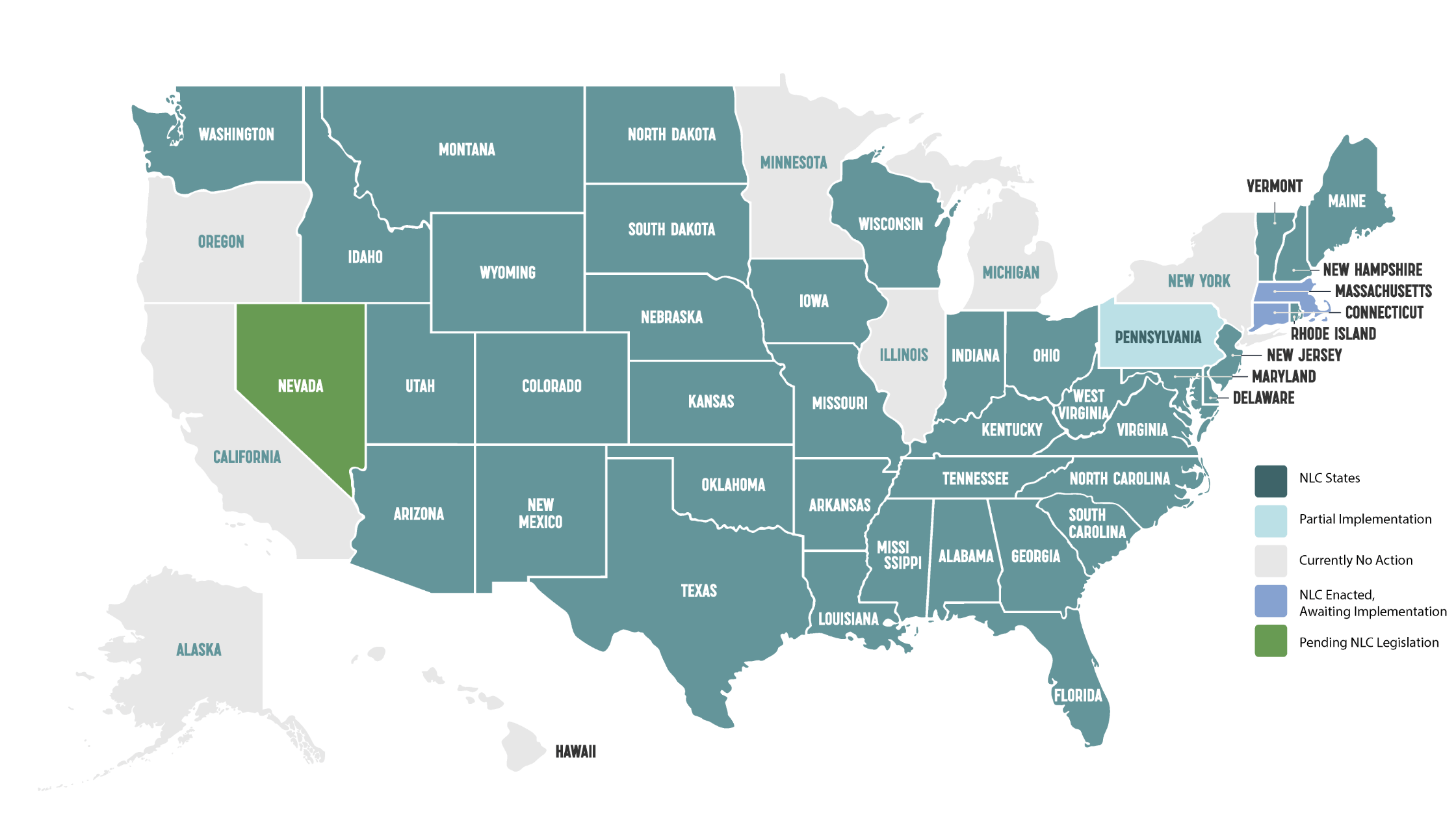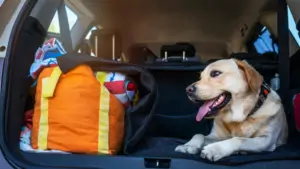The Nurse Licensure Compact (NLC) is an agreement that allows registered nurses (RNs) and licensed practical/vocational nurses (LPNs/LVNs) to hold a multistate license, enabling them to practice in any member state without obtaining individual state licenses. By allowing nursing compact states there is greater mobility for nurses, less workforce shortages, and it enhances healthcare access across the United States! It also helps travel nurses explore the country more freely. As of January 2025, these are the updates for all the states in regards to the NLC.
Current Status of the NLC
As of January 2025, there are 41 nursing compact states, with varying degrees of implementation:
Fully Implemented States:
These states have fully operational NLC processes, allowing nurses with a multistate license to practice without additional licensure. States include Alabama, Arizona, Arkansas, Colorado, Delaware, Florida, Georgia, Idaho, Indiana, Iowa, Kansas, Kentucky, Louisiana, Maine, Maryland, Mississippi, Missouri, Montana, Nebraska, New Hampshire, New Jersey, New Mexico, North Carolina, North Dakota, Ohio, Oklahoma, Pennsylvania, Rhode Island, South Carolina, South Dakota, Tennessee, Texas, Utah, Vermont, Virginia, Washington, West Virginia, Wisconsin, and Wyoming.
Partially Implemented:
Guam: Nurses with active, unencumbered multistate licenses from other compact states can practice in Guam. However, nurses residing in Guam cannot obtain a multistate license until full implementation is achieved.
Enacted but Awaiting Implementation:
Connecticut: Legislation was signed into law on May 30, 2024, with an effective date of October 1, 2025. The state is currently in the process of implementation, which can take 1 to 2 years.
Massachusetts: Governor Healey signed the NLC into law on November 20, 2024. The state is now working towards implementation, with the process expected to take 1 to 2 years.
U.S. Virgin Islands: The NLC was enacted on December 6, 2021, but is awaiting implementation pending the establishment of necessary processes, including criminal background checks.
Other State Updates
Several states have introduced legislation over time to become nursing compact states but have not yet enacted it:
Alaska: Senate Bill 130 and House Bill 149 were introduced in 33rd Legislative Session, but it did not make it to the finish line. They were reintroduced in the 34th session, and we are awaiting results. 89% of Alaskan resident nurses are in favor of joining the NLC.
California: There is currently no legislation in California to enact the NLC.
Hawaii: House Bill 667 and Senate Bill 670 were introduced in 2023 and carried over to the 2024 Regular Session. For 2025, House Bill 897 has been introduced to enact the NLC in Hawaii.
Illinois: Currently, there are three bills that address the NLC in Illinois: House Bill 1706, House Bill 1652, and Senate Bill 102.
Michigan: House Bill 4935 was introduced on August 24, 2023, and referred to the Committee on Health Policy. In 2025, House Bill 42 46 was introduced.
Minnesota: House Bill 1925 and Senate Bill 2608 were introduced in 2025.
New York: Assembly Bill 3391 and Senate Bill 6873 were introduced in 2023, but failed. In 2025, Sentate Bill 3916 is currently being disucssed to enact the NLC in New York.
Nevada: SB 34 is a bill that is part of the prefiling process for the 2025 legislative session.
Oregon: Introduced in 2025 was Senate Bill 966.
Benefits of the NLC
The NLC offers several advantages:
- Increased Access to Care: By allowing nurses to practice across state lines, the NLC helps address nursing shortages and improves patient access to healthcare services.
- Enhanced Nurse Mobility: Nurses can more easily relocate or take temporary assignments in other compact states without the administrative burden of obtaining multiple licenses.
- Streamlined Emergency Response: In times of crisis, such as natural disasters or pandemics, the NLC enables a more efficient deployment of nursing resources across state boundaries.
Considerations for Nurses
Nurses residing in compact states can apply for a multistate license if they meet the uniform licensure requirements. However, it is important to note that if you do not reside in a compact state, you cannot apply for a multi-state license, even when finding an assignment in a compact state. It’s important to direct any application questions to the Board of Nursing (BON) in your state.
Travel with Ventura MedStaff
The Nurse Licensure Compact continues to expand, promoting greater flexibility and responsiveness within the nursing workforce. If are interested in learning more about a compact license or pursuing travel assignments in compact states, contact one of our recruiters! We’d love to answer any of your questions and help get you started on your next adventure.






